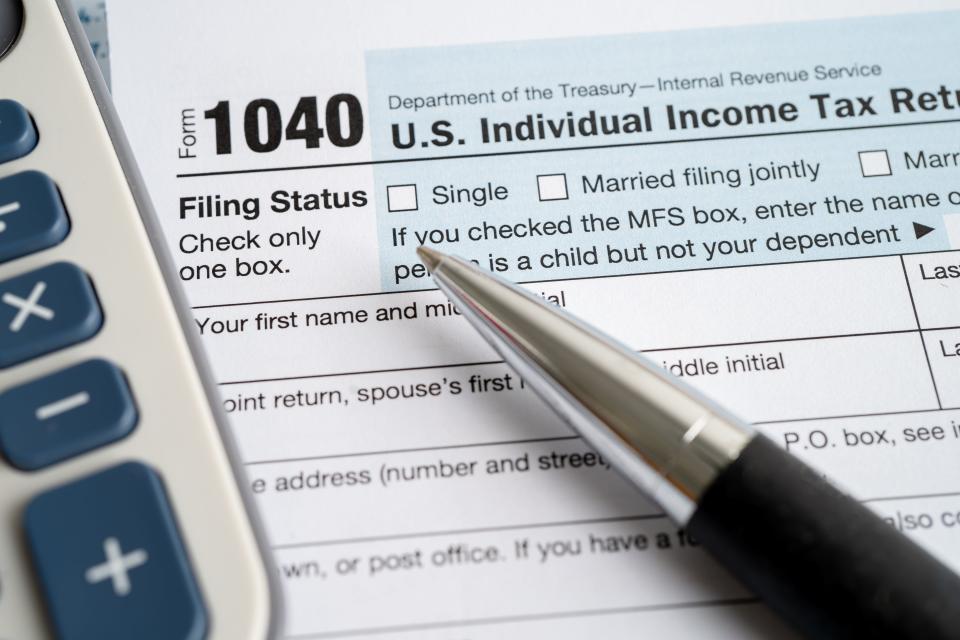Tax expert: Temporary breaks related to COVID-19 expire and will impact 2022 returns
The most noticeable differences in the 2022 income tax return might seem familiar to taxpayers.
That familiarity stems from the expiration of several tax breaks introduced during the COVID-19 pandemic, such as special provisions to the earned income credit, child tax credit and charitable contributions. With those temporary changes gone, the return takes on a 2010s feel.
“This year, it’s not that Congress added anything, it’s that some things went away,” said Susan Clifford, a certified public accountant and a principal with Savannah-based Hancock Askew & Co.
IRS tax time guide: Things to consider when filing a 2022 tax return

Clifford and four of her colleagues - Kristine Pendilla, Robby Skibicki, Emory Nesbit and Will Curry - will host a tax advice call-in day on Wednesday, March 22, to help Savannah-area taxpayers in navigating these changes and other tax filing challenges.
Hancock Askew’s tax pros will take calls from 11:30 a.m. to 1:30 p.m. at 912-226-2474. Questions can also be submitted online at hancockaskew.com/hactaxcallin2023/.
On March 26, the Savannah Morning News and SavannahNow.com will publish several of the questions and answers received during the event.
The 2023 income tax filing deadline is April 18.
Clifford detailed other “must knows” about preparing 2022 income taxes in a recent Q&A with the Savannah Morning News. Here are excerpts from that conversation.




Let’s go deeper on the tax breaks that expired. Most taxpayers won’t be surprised by cuts to the earned income and child tax credits. But what other changes will impact taxpayers this year?
Susan Clifford: “Congress didn’t pass what is known as an ‘extender’ package in 2022. These are tax breaks that often get rolled over and renewed every year, but they weren’t extended for 2022. The biggest items would be the deduction of mortgage insurance premium. Those have long been deductible, along with mortgage interest, but the insurance premiums are not deductible this year.”
You mentioned earlier that charitable contributions are affected this year, and many taxpayers benefit from those deductions as they reduce taxable income. What do we need to know about writing off charity giving?
SC: “You only get to deduct charitable contributions this year if you itemize. The last two years, those who took the standard deduction could take a deduction on charitable contributions of $300 for an individual and $600 for a married couple filing jointly. That deduction is gone.”
Is there good news for tax filers this year?
SC: “Yes. Because of inflation, tax brackets adjust up, which pushed the standard deduction up. The standard mileage deduction went up in the middle of the year due to high gas prices. Instead of 58.5 cents per mile it is now 62.5 cents. So if you track your mileage for business, you are going to see a bigger deduction. The mileage deduction for going back and forth to the doctor’s office or the hospital went up as well, from 18 cents a mile to 22 cents.”

With all these changes, odds are many taxpayers are going to be surprised by the size of their refund - or what they owe - when they go to file. In your experience, how challenging is that for taxpayers?
SC: “Taxpayers are going to have to adjust backwards, which is always different because you get used to more credits and more money. But those special breaks were due to the circumstances of COVID-19, and at this point, most are back into a more normal life and will be able to adjust.”
Tax day is typically April 15, but because that date falls on a Saturday this year, the deadline is April 18. Do you recommend taxpayers wait until the deadline to file?
SC: “You should always file sooner rather than later. The sooner you file your taxes, the sooner you get any refunds. And if you owe money, you can file your taxes today and you still don’t have to pay what you owe until April 18. You don’t have to pay when you file. And if you know you’re going to file for an extension, there’s no reason not to do that now. Keep in mind that if you own money, you’re going to need to send any payment with your extension. As the IRS says, it’s an extension of time to file, not an extension of time to pay.
“Another good thing about filing early: If you are due a refund and you e-file with direct deposit, you get your refund in about two weeks.”
This article originally appeared on Savannah Morning News: 2022 income tax filings: Here's what to know before you file

